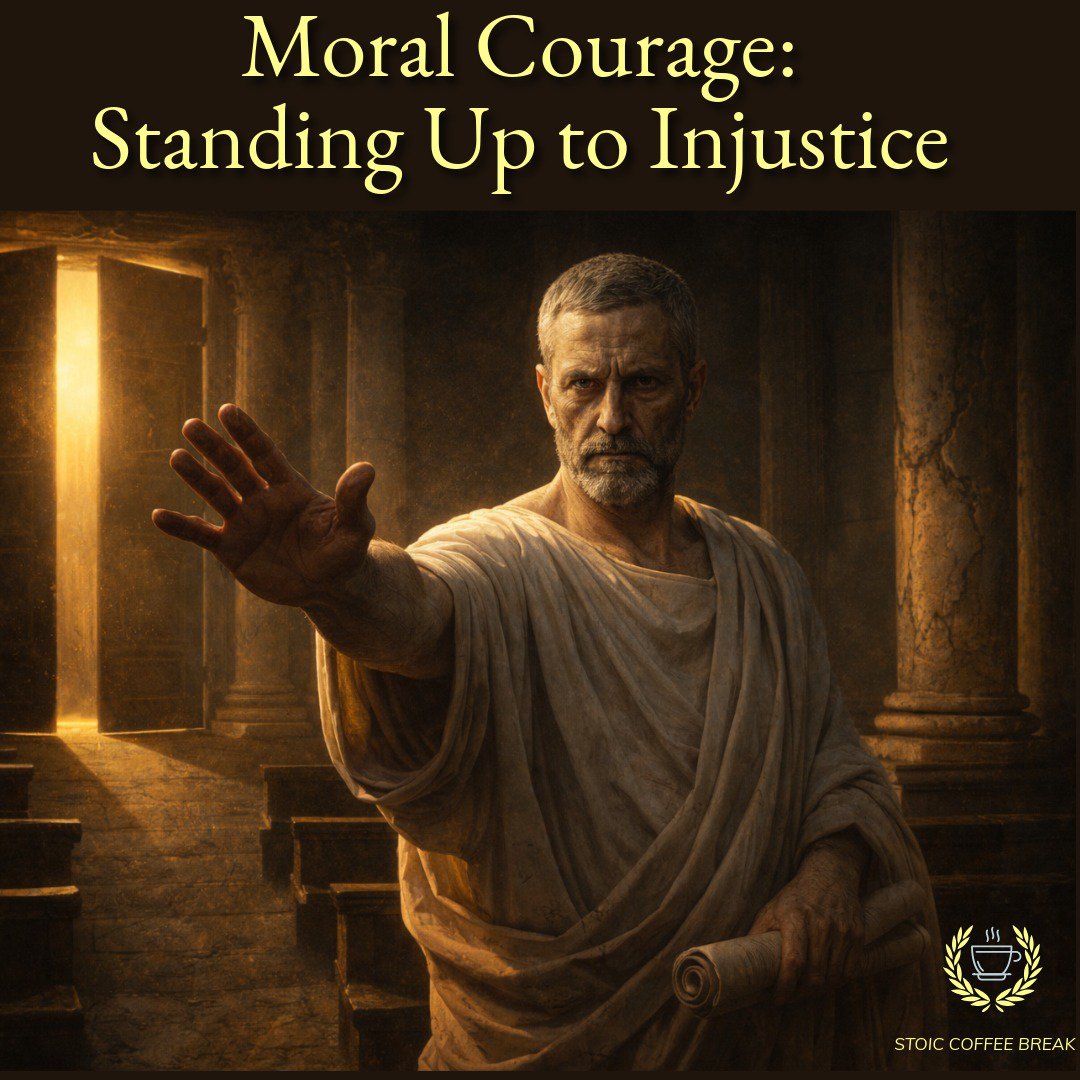
Do you ever feel like life is happening to you, and that you’re at the whim of circumstances? What would it feel like if you could take what life hands you and say, “Thank you sir! May I have another?” In this week’s episode I’m going to be reading another chapter from my book, Stoicism 101, where I write about dealing with external events.
Freedom from External Events
Embracing the Power Within
“Look within, for within is the wellspring of virtue, which will not cease flowing, if you cease not from digging.”
—Marcus Aurelius
In the pursuit of tranquility and virtue, Stoic philosophy offers a powerful framework: freedom from external events. Stoicism teaches that true peace comes not from controlling the external world, but from mastering one’s reactions to it. Stoicism empowers individuals to achieve freedom from external events by cultivating inner strength and resilience.
Stoic Principles of Inner Freedom
A core principle of Stoic philosophy is the distinction between what is within one’s control and what is not. The Stoics asserted that a person’s thoughts, beliefs, and reactions are within their own power, while external events—ranging from the weather to the actions of others—are beyond their direct control. Epictetus, one of the key Stoic thinkers, succinctly encapsulates this in his Enchiridion: “Some things are in our control and others not.” By focusing on the former and detaching from the latter, Stoics maintain equanimity in the face of life’s unpredictability.
Mastering Responses to External Events
Stoicism teaches that freedom comes from the mastery of one’s responses to external events. This mastery involves reshaping one’s perceptions and judgments, which are often the real sources of one’s distress. Roman emperor-philosopher Marcus Aurelius advises in his Meditations: “If you are distressed by anything external, the pain is not due to the thing itself, but to your estimate of it; and this you have the power to revoke at any moment.” By changing your internal responses, you not only ease your suffering but also reclaim your freedom.
The Dichotomy of Control
A key concept in Stoicism is the Dichotomy of Control, which advises a person to accept whatever they cannot change while striving to influence what they can. This principle is a practical approach to living; it encourages focusing on personal effort and ethics rather than the outcomes, which are often unpredictable and influenced by external factors. This mindset not only reduces anxiety and frustration but also fosters a sense of serenity and empowerment. As Epictetus succinctly explains, “Suffering arises from trying to control what is uncontrollable, or from neglecting what is within our power.” For more on this topic, see Entry 8: The Dichotomy of Control.
The Stoics understood that most of a person’s negative emotions occur because of their perspective on external, uncontrollable events. Whether your emotions are in response to, for example, others’ opinions of you, a stock market loss, or a natural disaster, the Stoics recognized that getting angry or stressed over situations outside of your control often leads to poor choices, and can often make the situation worse. As Marcus Aurelius observes, “How much more grievous are the consequences of anger than the causes of it.”
Amor Fati
The Stoic concept of Amor Fati, to “love one’s fate,” is central to the Stoic idea of freedom from external events. Rather than reluctantly accepting what happens in life, the Stoics proposed that people should learn to love and appreciate all the challenges that life sends their way. They believed that rather than wasting time and energy and disturbing one’s inner calm by resisting the events of life, it’s better to cultivate a perspective that everything external in life is an opportunity to practice virtue.
Historical Examples of Stoic Freedom
Stoic freedom can be seen throughout history in many ways, like the following.
Cato the Younger
Known for his unwavering Stoic virtue, Cato the Younger exhibited remarkable resilience and independence in the face of political turmoil during the final days of the Roman Republic. His commitment to Stoic principles allowed him to maintain his integrity and freedom even as external events spiraled beyond his control.
James Stockdale
An American vice admiral and aviator, Stockdale was a prisoner of war for over seven years during the Vietnam War. He credits Stoic philosophy, particularly the teachings of Epictetus, with giving him the inner strength to endure captivity and torture without breaking. His survival and leadership under such extreme conditions demonstrate how Stoic wisdom can provide profound resilience.
Modern Application of Stoic Freedom
In today’s fast-paced and often volatile world, the Stoic practice of distinguishing between the controllable and uncontrollable aspects of life is more relevant than ever. For individuals facing challenges at work, in personal relationships, or in broader societal issues, Stoicism offers a way to navigate stress and adversity with grace. By focusing on your internal reactions and maintaining your ethical standards, you can achieve a form of freedom that external circumstances cannot diminish.
The Stoic path to freedom from external events is not about indifference but about active engagement with the world without being dominated by it. It involves a deep transformation of your perspective, where peace is derived not from external conditions but from a well-fortified inner life. As Epictetus puts it, “We, not externals, are the masters of our judgments.” In embracing Stoic freedom, you find not only freedom but also the resilience to live your life with purpose and dignity, no matter what challenges you face.
Conclusion
When I first started studying Stoicism, this was one idea that really hit me hard. I began to become more aware of how I let outside things have such an outsized impact on the way that I viewed things. When I would start to feel annoyed or frustrated by something, I would take a moment to see if I could be a little more objective. I would try to separate what was fact and what were my feelings and thoughts around those facts. That little pause helped me to see just a little more clearly what was under my control and what was not.
By understanding what you can control, and letting go of what is not, you’re not giving up, you’re being wise. Continuing to try and change things you can’t is futile and often makes the situation worse. Slowing down, weighing your options, and taking a step in the right direction will, at the very least help you make progress, and may even lead you to the right path.
Join us in the podcast community: Building the Unbreakable
My book Stoicism 101 is available! Order here!
Find out more at https://stoic.coffee
Watch episodes on YouTube!
Find me on linkedIn, instagram, twitter, or threads.
Thanks again for listening!


